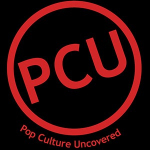Throwback Review – Blade Runner
Despite the lackluster numbers this weekend you should go see Blade Runner 2049. Before you go though, you should revisit the original Blade Runner. While it would be disingenuous of me to claim that it’s perfect (there after all multiple versions of the film with the last coming out in 2007), it is still one of the most important sci-fi films ever produced. I know that comes off as hyperbolic, but it’s true. Themes of humanity, slavery, the dangers of artificial intelligence and ecological damage are all present. Blade Runner, directed by Ridley Scott, sits (at least for me) somewhere in that pantheon of sci-fi film adjacent to Friz Lang’s Metropolis.
Based on Do Androids Dream of Electric Sheep by the remarkable Philp K. Dick, Blade Runner is a bleak depiction of an post nuclear war scarred Earth with humanity in decline. Many of those healthy enough to the leave the Earth have abandoned it for off-world colonies. As the title crawl in the 2007 final cut states, the hazardous and dangerous work that needs to be performed in those colonies is performed by Replicants (derogatorily referred to as “skinjobs”) , bio-engineered humans made by the Tyrell Corporation. The Replicants, stronger than a normal human and as intelligent as the engineers who created them, are essentially slaves who have escaped their bondage and fought their way to Earth in hopes of finding a way of overcoming their built in safety measure – a four year life span. Standing in their way is the special “Blade Runner” police unit responsible for their “retirement”. Rick Deckard (Harrison Ford) is tasked with tracking them down.
Blade Runner is a very different Harrison Ford film, as Deckard isn’t a sympathetic character. In fact, next to his role as a murder in What Lies Beneath, it’s Ford’s most unlikable character. Forced back into being a Blade Runner, Deckard is more flawed than the Replicants he is pursuing. Constantly drinking to deal with his inner turmoil, Deckard is essentially completely isolated – living alone in a decaying world. Without his relationship with Rachel (Sean Young), an experimental Replicant made by the Tyrell Corporation who believes that she is human, the character would have very little to do.
The real stars of Blade Runner are the Replicants, specifically Roy Batty (Rutger Hauer). Roy Batty is the heart and soul of the film and produces one of cinema’s greatest performances. He is the rare multi-dimensional antagonist. He’s capable of generating a tangible sense of menace simply from his presence, but he’s also capable of love and compassion; as shown in his relationship with Pris (Darryl Hannah). The final third of the film is devoted to Roy’s confrontation with Dr. Tyrell, and his confrontation with Deckard. I won’t spoil the conclusion of the film but I will state that I think that Roy is best seen as a tragic hero. Ultimately, he wants to save the woman he loves and his friends by any means necessary, although it seems like existence itself is determined to deny him his dream.
Blade Runner raises a lot of important questions and is perceptive enough to never answer them. Will humanity treat its progeny better than has minorities and women? In the future will the biological nature of life matter, or will all that matters be how living things interact with each other? So watch the definitive version of the film; the 2007 final cut done by the original director Ridley Scott and enjoy one of the greatest sci-fi films of all time.
If you’d like to read more about the themes of slavery in the film, check out Andre Seewood’s amazing article on the Blade Runner series and race for Shadow and Act.

